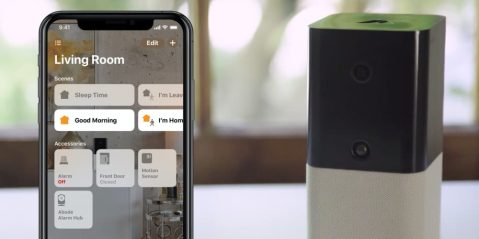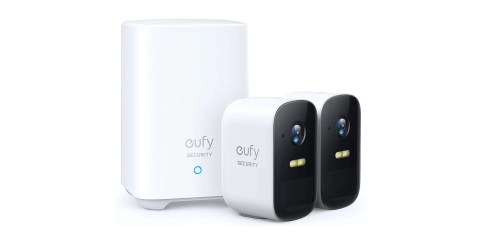
It’s getting close to summer and summer traveling here in the U.S., and I was recently reminded how beneficial remote access to your smart home accessories could be. So this week, I want to explain how to get access to your devices when away from home and the potential use cases.
HomeKit Weekly is a series focused on smart home accessories, automation tips and tricks, and everything to do with Apple’s smart home framework.
In the summer of 2020, we had our hardwood floors redone after a tornado landed a big tree on our house, and the accompanying rain poured in to my living room. Our hardwood floors took on a decent amount of water, so a large section of it had to be replaced, and the entire first floor had to be refinished. This entire project took a week as the floors had to be sanded down and re-stained. Doing a project like this on a new house is part of the building process, but in an existing home, it’s a mess. In addition, it requires moving every bit of furniture out of the area. We planned to do it while we were gone on vacation to avoid needing to stay in a hotel for a week.
Remote access to the rescue
The person that was redoing our floors is a family friend, so I trusted him in my home while I was not there, but I wanted an easy way to lock the door and set the alarm system. Thanks to my existing HomeKit setup, we had that option. I was already using the August Lock and abode alarm system. Both products allow remote access using their built-in native apps or HomeKit.

If you have products that you want to access remotely that don’t allow for native remote access, you’ll want to make sure you have a HomeKit home hub installed in your home. A HomeKit home hub can be a HomePod, HomePod mini, Apple TV, or an always plugged-in iPad (Check out this iPad wall mount setup for HomeKit.) If you have at least one of these devices on your network, you’ll have full access to your HomeKit environment when away from your home. If you really want to put it into use, you can flip your lights off and on at random times while you’re gone to really trick would-be burglars.
Let’s say that you have a HomeKit-only alarm system not tied to a monitoring station, but you want to disable it remotely for someone to enter – this is a situation where a HomeKit home hub will come in handy.

When you’re designing a smart home setup, you’ll want to think about situations where you want to let someone in remotely. In our situation, I knew the floor crew was coming at 8:00 a.m., so at 7:50 a.m., I’d unlock the door, disable auto-lock on the door, and disable the alarm. When I’d get the alert from my eufy cameras that they were pulling out of the driveway in the evening, I’d lock the door and enable the alarm system.
Wrap up
Even with building our new house, we’re going with the same setup: August Lock with Wi-Fi for our side door and an abode security system with central station monitoring. The home building process has led to me rethinking what benefits HomeKit brings to my life, and it’s clear that the ability to unlock your doors remotely while disabling your security system is very beneficial to have when the need comes up.
FTC: We use income earning auto affiliate links. More.








Comments